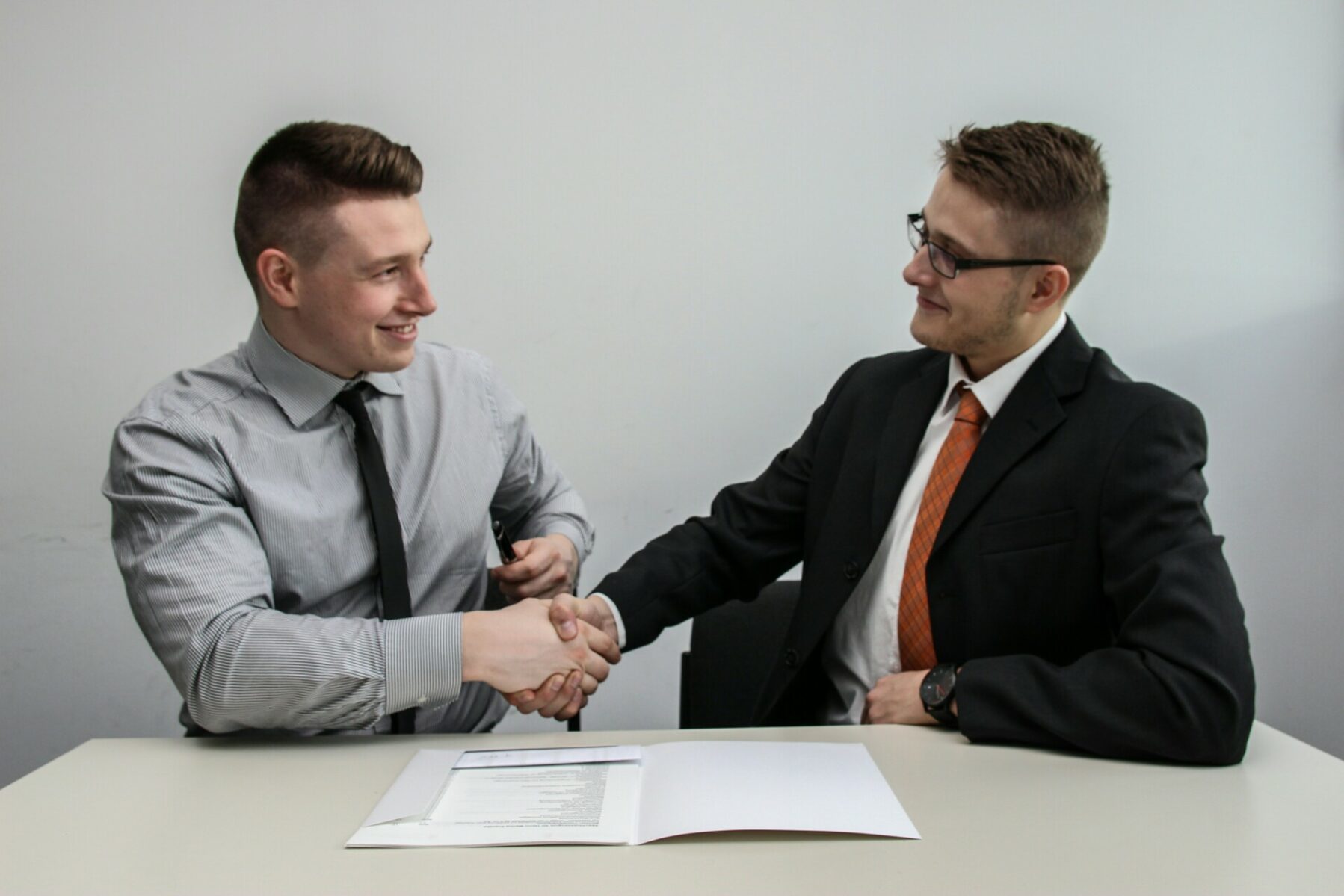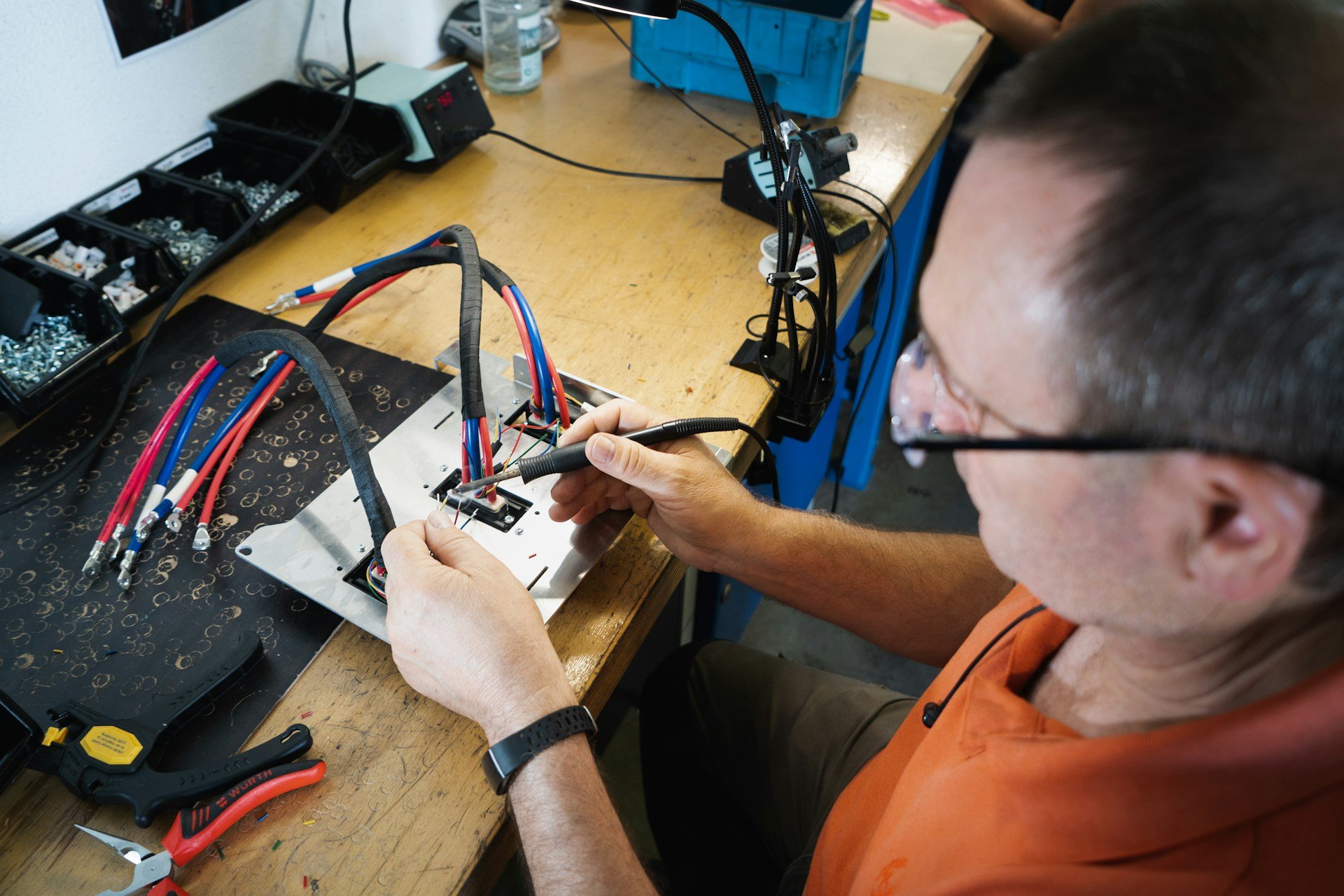Recent neuroscientific studies have highlighted that The areas of the brain that process language also involve body movements because they are physically close to the people doing the gesturing. This explains why you also gesture when you talk on your cell phone. Linguistic research indicates that people evaluate communication 55% on body language and the rest on tone and spoken words.
What happens during a job interview? We spoke to an expert to understand the body language to avoid and emphasize during an interview.
You too can rediscover the pleasure of staying informed!
Your support helps protect our independence so we can continue to produce quality journalism that is open to all.
Support us
Interview with psychologist Davide Caricchi: how to avoid misunderstandings with “non-verbal” language
Davide Caricchi, psychologist and expert in communication derived from body language, exclusively for Buonenotizie.itreveals some helpful tips for handling a job interview and beyond.
“The body has an incredible power of communication – explains Dr. Caricchi – a casual look or gesture provides information to the interviewer. Feelings are communicated even without using words. The first “message” you send during a job interview is your gaze. Never look down because it means “escape” and unavailability for confrontation. When we are impressed, we instinctively look down to escape the questioning gaze of the interviewer, thus establishing a distance from those who intimidate us and have power over us.
On the contrary, as the expert pointed out, in the dynamics of the looks the eye contact should communicate openness And trust. Keeping the eyes open and looking attentively conveys a high level of interest in the interlocutor. The gaze should be modulated according to the context and never prolonged too much so as not to appear intrusive.
The smile: the winning weapon in an interview
Despite the emotion, smiling remains the best asset during a job interview. Studies show that smiling encourages an employer to hire.
“The second signal sent – continues the expert – and with smile. Laughter, by activating 12 facial muscles, produces endorphins that have analgesic properties and reduce stress levels. Smiling makes the initial interaction welcoming and predisposes you to accept the conversation. However, be careful with the “unconvinced” smile that masks other feelings, such as frustration and that, if recognized, can provoke unexpected reactions.. Finally, speaking of facial messages, be careful not to raise your eyebrows as this is a gesture that indicates surprise, but it could also send a message of disgust. Next comes the handshake. Even our hands betray our emotions: sweaty palms are a message of agitation. Emotional tension stimulates the sympathetic nervous system by activating the secretion of sweat from the sweat glands located in the hands.”
Unconscious communication through the body
Gestures, such as “an open window,” reveal emotions and posture is an unconscious reaction aimed at protecting vulnerable areas of the ego.
“During the interview avoid a hunched posture which can be indicative of problems of insecurity, pessimism and, in more serious cases, a depressive disorder – sCaricchi suggests – An upright and “open” posture reduces stress levelsbut be careful not to be too relaxed, for example when sitting you take up more space than necessary (which is an indication of a dominant position). Also, Avoid drumming your fingers and constantly moving in your chair: these are manifestations of a state of anxiety. Crossing your arms during an interview indicates a closed position or in any case a defensive attitude, without forgetting clenched fists which are a gesture of anger. The gesture of shrugging the shoulders reveals uncertainty, the absence of a solution at hand, while the gesture of arms stretched downwards and with open hands serves to reassure the interlocutor“.
THE recruiters is a real person you can ask questions to evaluate the job offer and with whom have a conflictual and reciprocal approach: body language will benefit.



